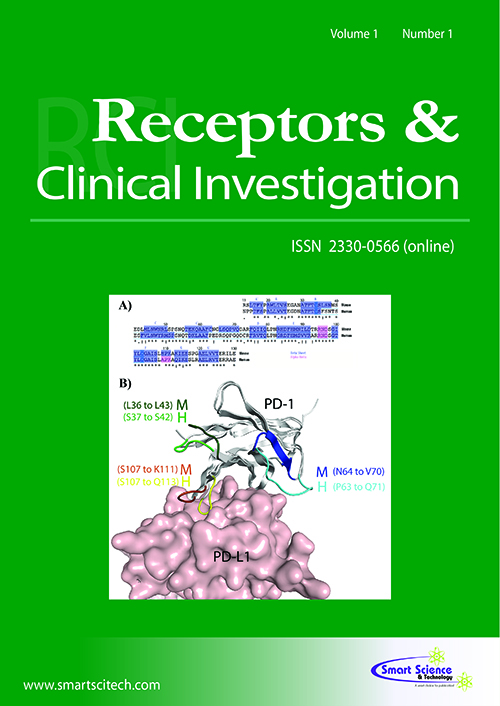Inhibition of VEGF/VEGFR1 interaction by a series of C-terminal modified cyclic peptides
Abstract
Inhibition of the interaction between vascular endothelial growth factor (VEGF) and its receptors (VEGFRs) is a validated therapeutic strategy of anti-cancer treatment. This approach consists in indirect blockage of the kinase activity on VEGFR with inhibitors of protein-protein interactions, which showed great interests in oncology. The FDA approved anti-cancer agents bevacizumab (Avastin®) and ziv-aflibercept (Zaltrap®) bind specifically to VEGF are from anti-VEGF strategy. The very recently approved agent ramucirumab (Cyramza®), a recombinant humanized monoclonal antibody that specifically binds to VEGFR2 is from anti-VEGFR strategy. Based on a cyclic peptide antagonist of VEGFR1 designed from VEGF fragments, we developed, by a new synthesis process, a series of C-terminal modified cyclic peptides to improve their receptor binding ability. Three of such peptides with aromatic groups showed greatly increased VEGFR1 binding affinity in a competition ELISA-based test. This research highlight discusses the processing and findings of the recent study.











